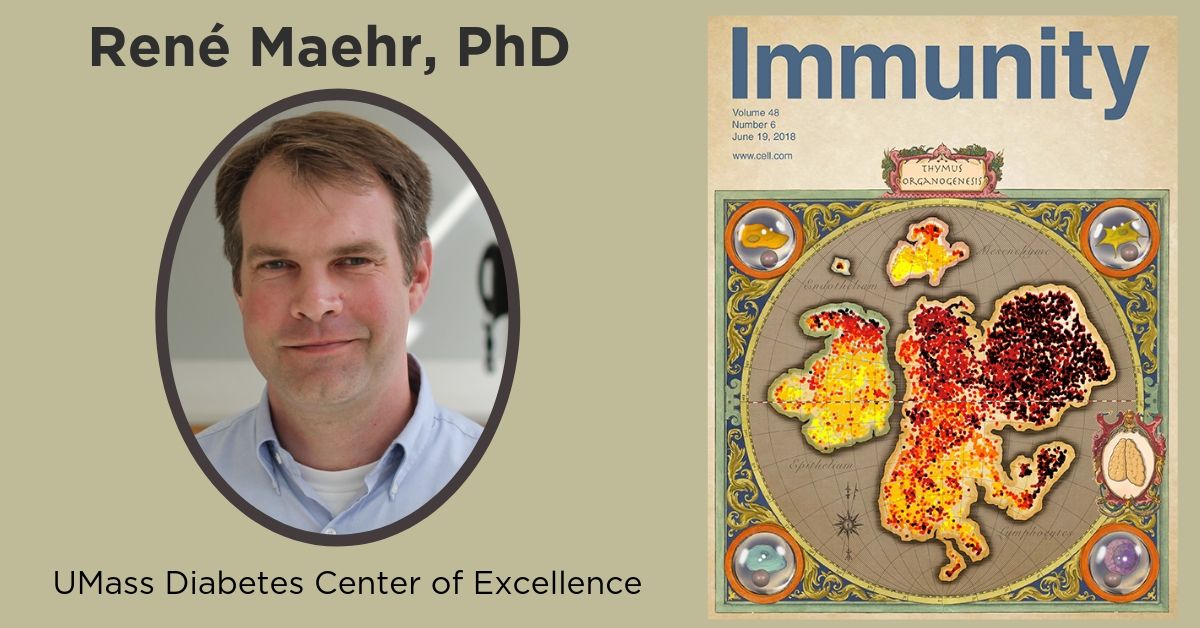Developing a Thymus in the Maehr Lab to Improve Type 1 Diabetes Research
Role of the thymus in type 1 diabetes
The thymus gland is located behind our breast bone and in front of the heart. Its role is to educate particular immune cells (called T cells) in children, to fight disease. Specifically, the T cells, play a critical role in the body’s immune response and in the thymus those cells “learn” how to recognize organisms invading the body or abnormal cells, from the normal healthy cells that make up our bodies.
It's believed that people with Type 1 diabetes developed the disease because their T cells attacked and destroyed their own insulin-producing beta cells, which are located within the pancreas. Scientists at the UMass Diabetes Center of Excellence (DCOE) are working tirelessly to understand the root cause of the autoimmune attack.
Creating a human thymus from stem cells
DCOE researchers have developed novel tools and techniques which puts us at the forefront of analyzing human cells of people living with type 1 diabetes. For instance, we’re currently studying the interaction between human T cells and human beta cells, in our unique humanized immune model.
In one of our clinical trials, Dr. René Maehr’s laboratory is creating human thymus from a type of stem cell derived from the blood of volunteer participants. We will then insert these thymus glands, along with millions of beta cells and T cells created from the stem cells of those same blood donors, into our humanized immune systems. This will allow our scientists to view and analyze the interaction between an individual’s own cells, to carefully investigate how and why the autoimmune attack is taking place. Once it’s determined what’s causing type 1 diabetes, we can then begin to test therapies within our humanized immune models.
Learn more about the research of René Maehr, PhD, Associate Professor, Program in Molecular Medicine.

